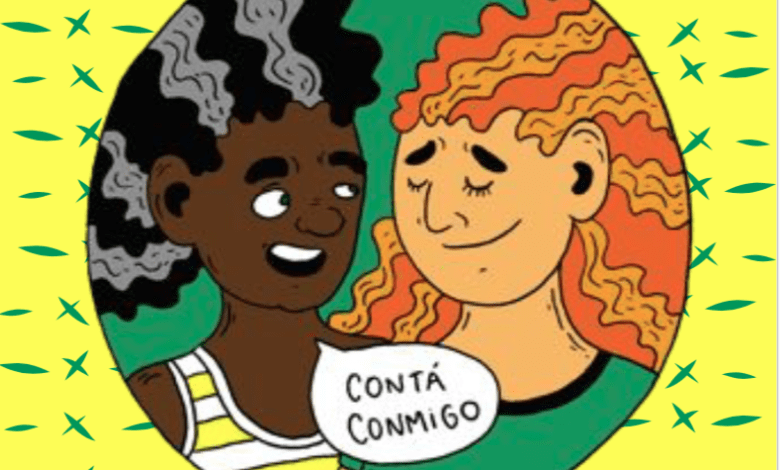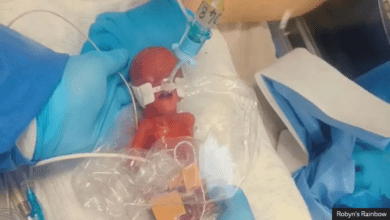“A lot of people wanted to talk.” — Abortion Conversation Projects

Abortion Conversations, Part 2: “A lot of people want to talk.”
An interview with Lucía Berro Pizzarossa, creator of Contá Conmigo
By Abby Minor
This is the second post in ACP’s 2021 blog series featuring conversations with recent grant partners. We began this series, written and moderated by ACP Board Member Abby Minor, to highlight some of the many questions, tensions, and insights that animate the complex work of destigmatizing abortion. We also launched this series for the simple reason that here at ACP, we’re always up for abortion conversations! If you are too, please join the conversation in the Comments below.
“In the beginning, I was very strong in saying that abortion is health care, a medical process, a service/access issue. And while it is, I now think that abortion is also moments and events in people’s lives, in a life that has many rich chapters. So it’s part of your health but also meets your plans, dreams, ambitions, love life.”
Who can talk about abortion in public? And how do those stories shape the ways society understands and interprets abortions and people who have them? When Uruguayan lawyer Lucía Berro Pizzarossa began researching the debate over the legalization of abortion in her country, she found that the images presented by members of parliament were based on stereotypes that had little to do with the experiences of women. “These people are talking about me and the people I love,” Lucía told me. “I don’t know the people they’re talking about. The people I know have very complex experiences that have nothing to do with the way these parliamentarians portray people who have abortions.”
So Lucía decided to start a project that would encourage women to tell their abortion stories on their own terms and change how the country of Uruguay thinks about people who have abortions. I had the pleasure of speaking with Lucía earlier this year, when we met on Zoom to discuss Contá Conmigo, the storytelling project she launched in 2019 with the support of an ACP seed grant. “Contá Conmigo has a double meaning,” he explained, “in Spanish, the word ‘contar’ means to tell a story (a story) and also to rely on someone. So in this project, women are telling stories and also supporting each other.”
Before asking Lucía how the project came about—and how it overcame a global pandemic—I wanted to learn more about the thinking that led her to it. While working on his PhD research, he told me, he experienced many positions: “I was a researcher and also a subject of the law,” he said. When she finished her PhD, Lucía wanted to move from its main argument—that “the people the legislators are talking about are not real people, but stereotypes and charged ideas”—to the logical next question: “okay, what do people who actually have abortions do, how do they talk?”
In asking this question, Lucía noted that it is not only conservative lawmakers who are against abortion. “It hurt, it came from both sides. So even the ideas used to promote supposedly liberal laws—like, women need access to abortion if they’ve been raped, or because they can’t care for existing children—not all of them Many of us go through abortions as dramatic or even strange experiences. .” He wants to make sure that Contá Conmigo can be a space for sharing “stories that are very real, sad, happy,” even mundane.
Lucía’s original plan was to facilitate storytelling and book club groups where real, sad, and happy stories could be shared. “The idea is that I’m in Uruguay and facilitating storytelling and sharing. I’ll start it maybe with one of my stories, and see where that conversation takes us.” He left the Netherlands, where he completed his PhD, and returned home to Uruguay at the beginning of 2020 with the intention of spending the year there to lead the talks in person. But once the Covid-19 pandemic changed things, he and his collaborators had to recalculate. “We tried virtual meetings,” he said, “but very few people showed up.” So they moved everything online, created a digital space with social media where people could tell their stories and also support each other—not the medium at first thought, but something similar. effects.
I asked Lucía what the response was. “It was incredible,” he told me, “as soon as the first story came out, people were sending in more stories. And a lot of the comments were like, ‘I’ve never seen a space like this. .’ A lot of people want to talk. People can send a letter, a voice note; they really want to talk to us and have that empowering moment of someone saying ‘thanks for sharing. That’s brave.’ There were a lot of very difficult but wonderful moments.”
“Sometimes when we want to break the stigma, we fall into the trap of unidimensional thinking—like abortion is really happy and empowering or really sad and difficult. But we have to create space to fight the stigma at the same time Possible be difficult.”
“We had an initial plan to collect the stories,” Lucía told me, “but it didn’t turn out like this—the booklet came about because we wanted to share something because we couldn’t meet in person.” The Contá Conmigo booklet, available in digital and print form, features 45 stories so far, each accompanied by bold, colorful illustrations. I asked Lucía how she got in touch with illustrator Mika P. “I’m a real fan of their work—so when we put the booklet together we said why not illustrate them? We talked about what it means to them to read those stories, what abortion means for gender norms and who has access to abortion. We looked at all the pictures, a beautiful detail in every story. I want the front page—a group hug.”
In many ways, Contá Conmigo is like a group hug—for storytellers, readers, and their listeners. “The story in Parliament is that abortion is a very sad thing. But the stories in Contá Conmigo are very different—stories of friendship, mutual care.” As Lucía predicted, the stories are not one-dimensional: “There is a lot of duality in the complexity of the stories,” she told me. “Yes, abortion is stigmatized and we reproduce that stigma. But also recognize that shame and sadness and confusion accompany abortion as a decision in the context of our lives, and with us as experts in our lives. We are not unidimensional people. In most cases in the stories of Contá Conmigo speak of institutional violence and misinformation given within the health care setting. So there’s this reflection that it was difficult and the system didn’t support me but in the end I felt relieved and happy.”
Since the ACP aims to encourage discoveries about new ways to reduce abortion stigma, I wondered if Lucía and her collaborators tried different ways of talking about abortion during the project, or if the way he thinks about abortion has changed? “In the beginning,” she told me, “I was very adamant about saying that abortion is health care, a medical process, a service/access issue. And while it is, I think now that abortion is moments and also an event in people’s lives, in a life that has many rich chapters. So it is part of your health but also meets your plans, dreams, ambitions, love life.”
She went on to explain, “Sometimes when we want to break the stigma we fall into the trap of unidimensional thinking—like abortion is really happy and empowering or really sad and difficult. But we need to create space to fight stigma at the same time Possible be difficult.” For example, “The first story we received was someone telling a wonderful story of an abortion that happened outside of legal channels. She recounted how she was at home with a friend, and her friends came over and made her a cake—this beautiful, supportive, amazing experience. And then the second story is a very difficult story, barriers to access the legal system, how he feels he can’t tell anyone, he and his partner kept it a secret for a long time. Two different stories—both safe in their decisions—but the journey, navigated differently.”
I asked Lucía: If you could wave a magic wand, what is one aspect of the normative abortion conversation or rhetoric that you would change? And what can you replace it with? He paused, and then said, “I’m going to remove maternal mortality reduction as a goal. Yes, we need to 100% reduce maternal mortality from unsafe abortion, that is the baseline. But I want it to be about—we have the right to have a dignified life. My only ambition when I access abortion is that I should not die. The law should be about giving me access to an abortion in a dignified way, not that I shouldn’t die. Access to abortion without dying is not enough.”
“The Uruguayan government says, ‘we have reduced maternal mortality, we have almost no deaths from unsafe abortion.’ I’m like, okay great, but those are breadcrumbs. I hear stories of people forced to listen to the fetal heartbeat, stories of people having to travel 400 kilometers to get a prescription for misoprostol. That is not honorable access. That should not be celebrated. Let’s try to push the narrative of access to abortion not just on the basis of safety but of dignity.”
“Let’s try to push the narrative of abortion access not just on the basis of safety but of dignity.”
Even though they have never had the opportunity to meet in person, Lucía and her collaborators have made important connections with the storytellers of Contá Conmigo. “When the first message came—we got a lot of stories, and then all of a sudden—this message of gratitude, affirmation, like, ‘thank you so much for reading my story and creating this space…Just my luck and love yours. .’ There was so much emotion, love, support in that message. I was very touched.” And with each story that comes in, Lucía also feels that the narratives she experienced as a researcher are finally starting to be corrected. “Parliament has discussed abortion for decades, I read pages and pages – but after this project I felt, here are the real stories.”





